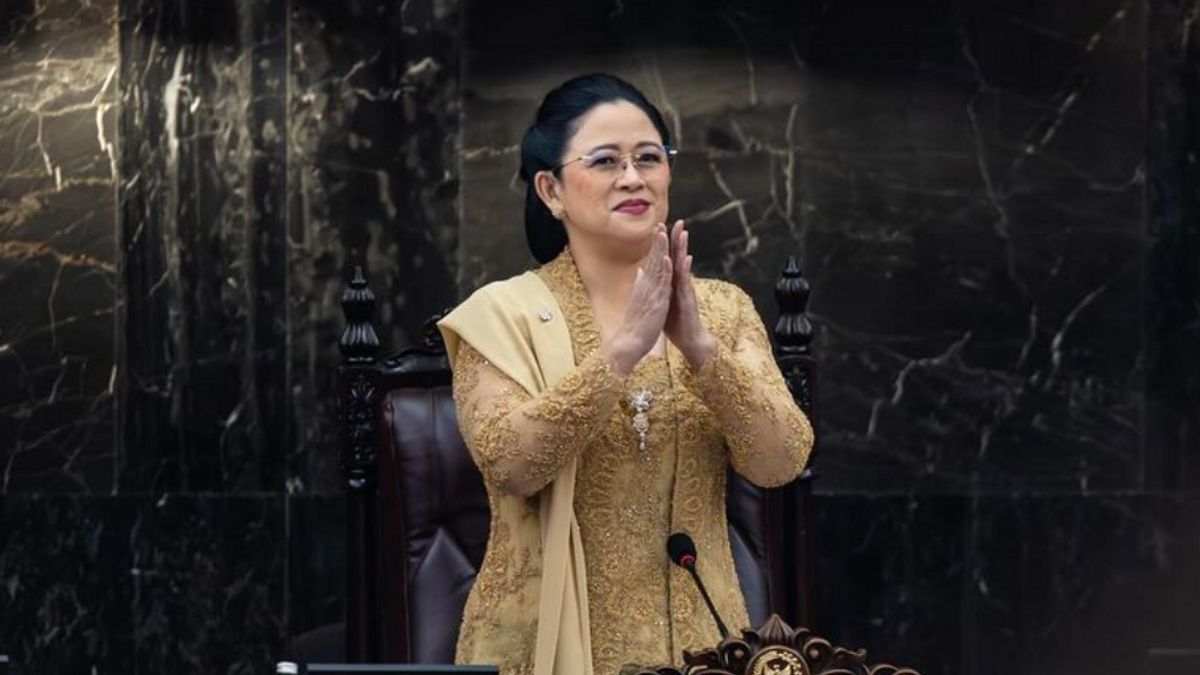JAKARTA - The Speaker of the House of Representatives, Puan Maharani, appreciates the actions of students who oversee the decision of the Constitutional Court (MK) in front of the MPR/DPR/DPD building.
In line with that, the DPR also canceled the ratification meeting for the Revision of the Pilkada Law and respected the Constitutional Court's decision.
"DPR RI as a state institution that is also a political institution, will continue to position the interests of the state that is bigger, in line with the constitution, respect the authority of state institutions, and continue to pay attention to all developing dynamics and aspirations of the people," said Puan in her statement, Thursday, August 22.
Puan reminded that the DPR as a state institution must carry out its duties according to the constitution. The chairman of the PDIP DPP ensured that the DPR would continue to pay close attention to various views on the Constitutional Court's decision regarding the Pilkada Law.
"As a state institution, the function and authority of the DPR RI is regulated by law, so that it can carry out people's sovereignty democratically," said the grandson of the Proclaimer of the Republic of Indonesia.
Therefore, Puan is grateful for the attitude of the Indonesian people who also oversee and control the functions and authorities of the DPR as the author of the law.
"Thank you for the aspirations of all elements of society, students, professors, activists, and celebrities. A democratic country will always open up space for the participation of every element of society to participate in conveying aspirations and even perform social control functions," he said.
The former Coordinating Minister for Human Development and Culture also invited all parties to work for Indonesia, which is increasingly advanced, prosperous, and civilized. According to him, the DPR also has power over the blessing of the people.
"The power of the DPR RI comes from the people, therefore the DPR RI will always maintain the people's mandate in carrying out its functions and authorities," said Puan.
As is known, the Constitutional Court granted part of the lawsuit against the Pilkada Law and stated that parties or coalitions of political parties participating in the election could nominate candidates for regional heads even though they did not have DPRD seats.
Through decision Number 60/PUU-XXII/2024, the Constitutional Court changed the rules in Article 40 of the Pilkada Law which regulates the threshold for candidacy in the Pilkada. The Constitutional Court stated that Article 40 paragraph (3) of the Pilkada Law was unconstitutional.
SEE ALSO:
With the Constitutional Court's decision, the threshold for submitting candidate pairs that will contest the Pilkada simultaneously changes from 20 percent of the DPRD's seat acquisition or 25 percent of the Legislative Election's valid votes to 6.5 percent to a maximum of 10 percent which is classified based on the number of Permanent Voter Lists (DPT) for each Province and Regency/City throughout Indonesia.
Not only about the threshold for candidacy, but the Constitutional Court also decided on a lawsuit regarding the age requirements for regional head candidates. The Constitutional Court rejected a lawsuit regarding the examination of the provisions for the minimum age requirements for regional head candidates.
From this decision, the Constitutional Court emphasized that the minimum age limit requirement for 30 years for governor and deputy governor candidates as well as 25 years for candidates for regent and deputy regent as well as candidates for mayor and mayor candidate has been calculated since the appointment of the person concerned as a regional head candidate by the KPU, not when the election of the elected candidate.
The English, Chinese, Japanese, Arabic, and French versions are automatically generated by the AI. So there may still be inaccuracies in translating, please always see Indonesian as our main language. (system supported by DigitalSiber.id)













